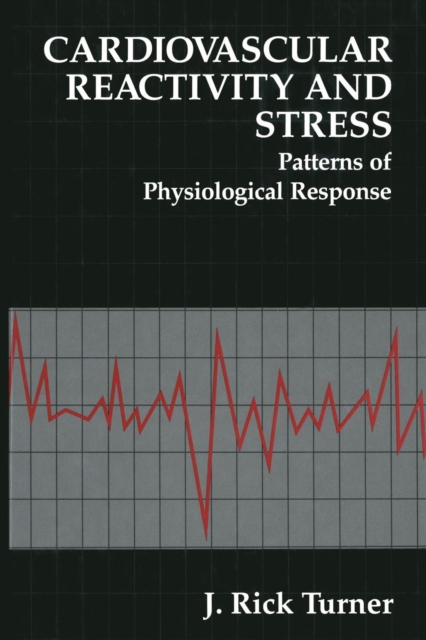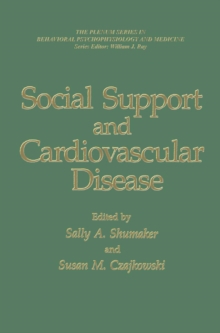
Cardiovascular Reactivity and Stress : Patterns of Physiological Response Paperback / softback
by J. Rick Turner
Part of the The Springer Series in Behavioral Psychophysiology and Medicine series
Paperback / softback
Description
This book is an articulate, concise, contemporary introduction to the study of important variables underlying cardiovascular reactivity.
Its strength is in the combination of a scholarly but nonpedantic approach to cardiovascular psychophysiology and a solid understanding of be havioral medicine approaches to the study of hypertension.
The topics covered are central to the study of relationships between behavior and cardiovascular reactivity; the list of suggested readings at the end of each chapter provides excellent guidance for more detailed study of specific issues.
It has now been more than a dozen years since Plenum Press published Paul Obrist's seminal monograph Cardiovascular Psycho physiology.
The volume had a major impact in relating cardiovascular regulation to behaving individuals and in developing thoughtful hy potheses concerning such factors as they might pertain to hypertension.
The impact of that work extended across scientific disciplines as well as aross continents.
At the time the Obrist book was published, a young psychologist, J.
Rick Turner, was completing his Ph. D. thesis in psychol ogy at the University of Birmingham, England, on heart rate reactions to psychological challenge.
After continued collaboration for the next several years with his former Ph.
D. mentor, Douglas Carroll, Turner joined the Obrist laboratory at the University of North Carolina.
Al though Obrist unfortunately died during Turner's tenure in the labora tory, collaboration continued with Kathleen Light and Andrew Sher wood.
The enlightened legacy of the North Carolina laboratory can clearly be seen in this text.
Information
-
Out of stock
- Format:Paperback / softback
- Pages:236 pages, XX, 236 p.
- Publisher:Springer-Verlag New York Inc.
- Publication Date:04/06/2013
- Category:
- ISBN:9781475795813
Other Formats
- PDF from £76.08
- Hardback from £89.99
Information
-
Out of stock
- Format:Paperback / softback
- Pages:236 pages, XX, 236 p.
- Publisher:Springer-Verlag New York Inc.
- Publication Date:04/06/2013
- Category:
- ISBN:9781475795813










